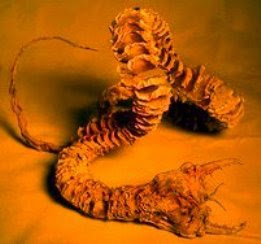

Long-tailed Macaque
Macaca fascicularis:
An Overview
Status: Near threatened (M. f. umbrosa), Lower risk but near threatened (M. f. aurea, M. f. fascicularis, M. f. philippinensis), Data deficient (all other sub species.)
Life span: 31 years
Total population: Unknown
Regions: Philippines, Malaysia, Indonesia, Burma, India, Vietnam, Cambodia, Laos, Thailand
Gestation: 5.5 months (165 days)
Height: 412 to 648 mm (M), 385 to 503 mm (F)
Weight: 4.7 to 8.3 kg (M), 2.5 to 5.7 kg (F)
Due to destruction of their natural habitats, for the building of roads, factories, housing and the clearing of natural forests for plantations of oil palms, and the replanting of rubber plantations with oil palms, the Long-tailed Macaque has been forced to move to plantations (but not plantations of non-native oil palms, which are not a suitable habitat for primates, and most native species of animals, except rat and snakes) and to wooded locations within and on the outskirts of cities, towns and villages where they can live and easily supplement their natural diet and survive by eating human food leftovers.
The natural diet of Long-tailed Macaques is a varied diet, consisting of fruits, leaves, small mammals and birds, shellfish and crabs.
Malaysia
This is reported by Reuters today –
“
In August, the government said it would end a ban on the export of long-tailed macaques after complaints that they were too aggressive and had attacked residents. Animal-rights groups objected, saying the monkeys would be sold to laboratories.
A recent study found 80 percent of urban macaques carried diseases such as tuberculosis, malaria, hepatitis and AIDS, he said. "Only 20 percent were healthy and, of this, only half the number were suitable for export," he added.
Govt abandons monkey export plans
This was the headline in New Straits Times,
According to NST, "minister Azmi Khalid said the decision was made after the discovery that about 80 percent of urban monkeys had contracted diseases and were deemed unfit for export.
He said the export was to fulfil the demand for exotic meat in a few countries in
"A study of 2,000 macaques in urban areas conducted several months ago found that 80 per cent of them were infected.
"Only 20 per cent were healthy, and of this, only half the number were suitable for export," he said adding that the diseases could possibly spread among the human population.
Relocation programmes
According to veterinary experts, humans could be infected with diseases carried by the monkeys if there was close contact.
Monkeys could also be infected with diseases contracted from humans if the animals licked human spit.
Azmi added that the ministry feared that the move to export monkeys would encourage companies to hire agents to seize the monkeys which might lead to uncontrolled hunting of the animal.
Veterinary experts have previously called for relocation programmes, reproduction controls and public education to stop residents from feeding or teasing the animals.
They also opine that the monkey problem occurred in many major cities throughout the country due to the massive destruction of forests that has pushed the wildlife to seek shelter and food in urban areas.
The monkey population in the country is about 700,000, with 250,000 in urban areas.
The monkeys usually found at the urban areas include the long-tailed and pig-tailed macaques, and the leaf monkey.
The Reuters report also quoted Azmi as saying
“The diseases could pose a threat to human health, but it gave no idea as to how the government now planned to tackle the problem.”
It is certainly very good news that there will be no more export of monkeys to satisfy the demand for exotic meat and the requirements of research laboratories for cruel animal experimentation, trials and testing
Now one wonders, what will be the fate of the estimated 250, 000 urban monkey population in
Will they be relocated?
Or, as I fear, will they be all exterminated?
The latter is the easy way out, and going by the way that other animals are treated in Malaysia, it may well be the government preferred way to solve the pesky monkey problem.
All animal lovers and conservationists must speak out and put pressure on the government of
Please help the monkey population of Malaysia.
Yeghes da!






























No comments:
Post a Comment